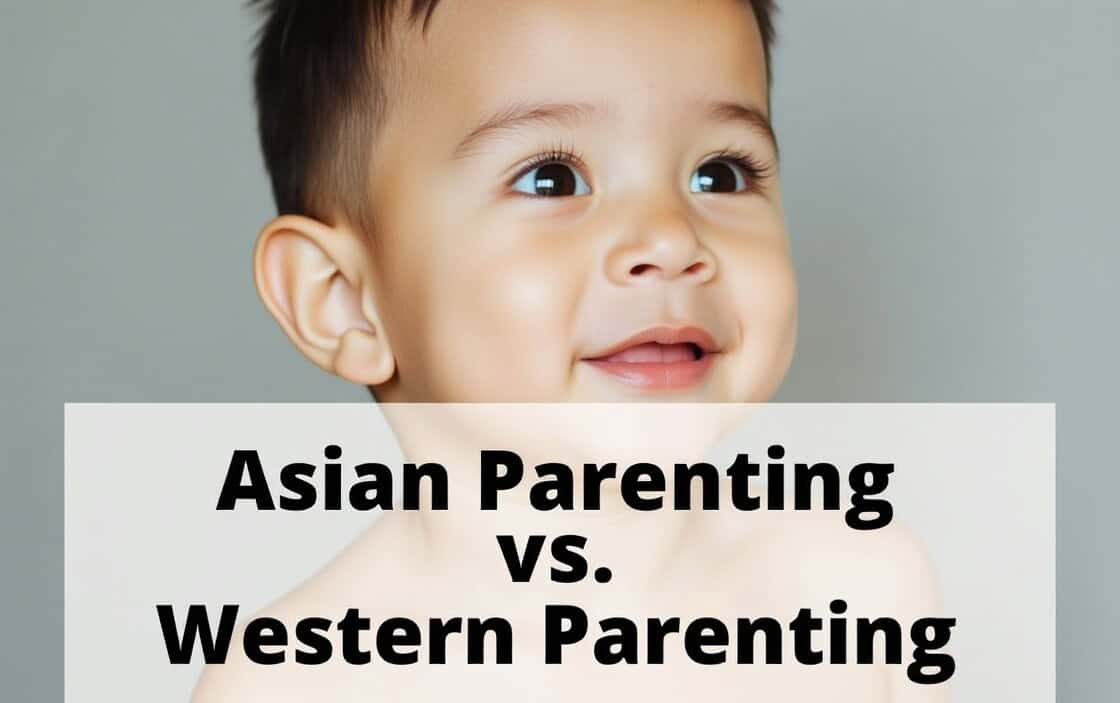Parenting isn’t one-size-fits-all! Parents across the world use diverse techniques for child upbringing that mirror their cultural traditions and identity. This guide examines in detail the parenting philosophies that differentiate Asian from Western parenting styles to fulfill the needs of both parents and readers interested in these approaches.
Professional research indicates that cultural parenting systems produce meaningful effects on children’s emotional development patterns. This piece investigates the exciting differences while identifying knowledge through both methods.
Defining Asian Parenting: Tradition and Discipline
The first impression that comes to my mind regarding Asian parenting is respect. The importance of hierarchy ruled my family household because decision-making started from the elders, moving to lower-ranking members. Our family dinners served a dual purpose, merging nutrition and training in self-discipline together with work ethic education. You should know that representing yourself means carrying the responsibilities of your entire family, according to my mom. This awareness of accountability directed my approach toward all aspects of living.
Academics received unlimited reverence while all established schedules functioned without exception. When someone made fun of my companion’s mother’s color-coded scheduling system, she actually achieved better concentration and effectiveness through this method. Asian household discipline consists of both following set rules and maintaining constant discipline in everyday life. The appearance of strictness in parental teaching methods resembled a punishment for achieving only 92% in math but originated from parents who wanted students to reach their peak performance. The intense family expectations often create a sense of pressure that makes children experience constant worry about fulfilling expectations.
Asian parents exercise collective decision-making as one of their core beliefs. Vacation destination selection within my family needed family approval, but my father made the final selection. The decision-making approach created family bonds, although it differed greatly from Western societies, which focus on letting children make their own choices.
Understanding Western Parenting: Independence and Individuality
Western parenting? It’s like a breath of fresh air. The first thing I noticed was how kids are encouraged to express opinions. My neighbor, Sarah, once debated her curfew with her dad, and he actually listened. In an Asian household, such a conversation might not happen!
The focus on independence starts early. A friend was packing lunches and doing laundry at eight years old. Me? I didn’t learn how to use a washing machine until I moved out. Western parents prioritize teaching life skills to foster self-reliance. It’s all about “You’ve got this, kiddo. Go figure it out.”
Emotional intelligence also takes center stage. Parents often explain why certain behaviors are unacceptable, building trust and empathy. This gentle discipline approach feels flexible, like letting kids pick their bedtimes—a concept that initially felt wild to me but promotes natural consequence learning.
Western parenting values freedom and creativity. A colleague once said, “If my kids spend all day making mud pies, I call that a win.” It’s a stark contrast to structured routines but fosters resilience and out-of-the-box thinking.
Core Cultural Differences Between Asian and Western Parenting
Mutual cultural legacies form the essential reasons behind these parenting differences. Success represents family heritage under Asian parenting traditions because it defines the entire family unit. The parenting style in the West creates conditions for people to shape their life direction.
Asian family success requires students to demonstrate academic performance together with professional success without accepting failure as an option. Failure serves as a learning opportunity in the eyes of Western parents, which I have learned to appreciate in my American experience.
Emotional expression varies, too. Asian parents demonstrate affection by serving classic meals for their children, but Western parents often express love through direct declarations. Traditional Asian child-rearing practices generally support traditional gender norms, while Western caregivers work to break societal gender stereotypes by using non-gender-specific playground items as well as promoting equal possibilities.
Pros and Cons of Asian Parenting
Asian parenting’s strengths are undeniable. Asian parenting style stands on the foundation of discipline as well as respect and resilience. When children matured, their automatic practice of respectful behavior toward older generations, along with strict rule compliance, developed into adult responsibility. The imposition of elevated expectations typically brings about outstanding academic results together with notable occupational success.
This parenting approach faces considerable problems during implementation. Mandatory high achievement generates nervousness and physical exhaustion in many students. Lack of emotional openness in parenting usually makes children delay sharing their challenges. High achievement becomes possible using this method, yet a fundamental cost evaluation remains necessary. People usually neglect their emotional state when they focus on reaching perfection.
Pros and Cons of Western Parenting
Western parenting effectively promotes creativity along with individuality development in children. When children receive this style of upbringing, they tend to become better at problem-solving along with innovative thinking. The belief in her public speaking abilities emerged from the support her parents provided during family communications, according to her friend’s account.
Emotional intelligence is another highlight. Teaching children emotional management together with effective communication allows Western parents to develop empathetic and socially proficient adults. Despite its advantages, freedom does not always produce proper organization. Gentle discipline produces worthwhile results, yet its effect requires patience since friends observed their toddler’s public outbursts despite the absence of constant discipline.
Children under Western parenting become confident and satisfied because parents prioritize their emotional development. The key issue involves maintaining appropriate freedom while maintaining proper organization.
Lessons to Learn from Both Parenting Styles
The merger of Asian and Western parenting elements becomes most appealing when their respective advantages complement one another. I have incorporated Asian discipline along with Western emotional validation in my parenting approach. Although this combination is challenging to implement, it leads to positive outcomes.
One key lesson is balance. Children require frameworks alongside space that permits their discoveries and their learning from errors. Students who merge their academic efforts with creative work ultimately develop themselves.
Emotional connections are a vital lesson that stands out from this experience. My kids show different responses to rules when I teach them the reasons responsible for certain rules. The students understand the instructions because they go beyond mere order execution.
Parenting in a Globalized World: Bridging the Gap
The process of globalization is uniting parenting techniques that were difficult to predict before the previous generation. People with backgrounds in Asian traditions merge traditional Asian customs with Western freedom through their raising of young family members. A family I know participates in Lunar New Year festivities as they teach their children to have open talks between structure and independent choices.
Technology also bridges the gap. Parenting applications and online discussion platforms allow users to receive multicultural advice through which they develop mixed parenting methods. Numerous families, through their case examples, have developed original parenting styles by selecting strong elements from Asian discipline as well as Western emotional intelligence.
The fundamental aspect of parenting revolves around finding methods that benefit your household. All parents strive to raise content and physically sound children who are resilient no matter which parenting approach they choose between Western independence and Asian discipline or a combination of both.
Conclusion
A person seeking knowledge can find frameworks in the way parents raise their children, which mirrors societal doctrines. The Asian parenting tradition teaches child discipline together with respect, but Western parenting focuses on developing individuality and emotional growth. Both styles can combine their effective aspects to produce complete spaces where children flourish. Which parts of these different parenting techniques draw your personal interest? The discussion about molding the upcoming generation should persist.








Struggling to Start? Small Retail Business Ideas
10 Daily Habits to Manage Stress and Anxiety
The Ultimate Miracle Morning Routine: Transform Your Day Starting Tomorrow
Parallel Parenting: A Practical Guide to Effective Co-Parenting in 2025
Unbelievable Top 10 Health Benefits of Papaya
Parallel Parenting: A Practical Guide to Effective Co-Parenting in 2025
Struggling to Start? Small Retail Business Ideas
Why Home Based Selling Products Are the Future of E-Commerce